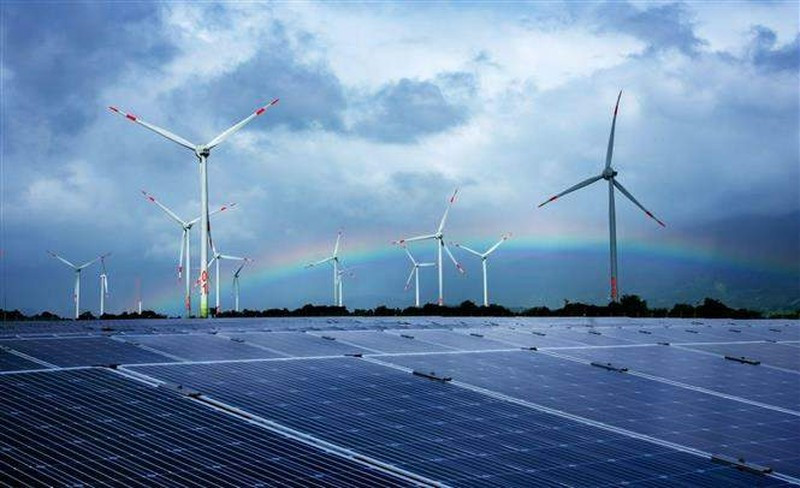Research results from the UK-based energy think tank, Ember, showed that electricity production from fossil fuels has not increased by 4% because global electricity demand growth is met entirely by renewable energy sources. By analysing data from 75 countries that account for 90% of total global electricity consumption, Ember said that world electricity demand increased by 389TWh over a half-year period, while wind, solar and hydroelectric power also expanded by 416TWh.
Wind and solar power output meets more than 75%, while hydropower meets the rest of the world’s electricity demand growth. This helps to prevent electricity production from fossil fuels from increasing by 4%, saving 40 billion USD in fuel costs and reducing hundreds of tonnes of CO2 emissions.
The International Energy Agency (IEA) believes that the current energy crisis is contributing to accelerating the use of renewable energy, opening up hope for achieving ambitious targets on global climate. According to the IEA report, total renewable energy capacity worldwide will nearly double in the next five years and overtake coal as the largest source of electricity generation by 2025.
The growth of 2,400 gigawatts in the 2022-2027 period is 30% higher than the IEA forecast made last year. This will help realise the goal of limiting global temperature increase by 1.5C set out in the Paris Agreement on climate change, the IEA said. The IEA also forecasts that additional renewable capacity in Europe between 2022 and 2027, will be more than double the additional capacity of the past five years.
According to IEA Executive Director Fatih Birol, when renewable energy is expanding rapidly, the global energy crisis occurs, helping to move this process into a new phase of faster growth. In the next five years, the world’s renewable energy capacity will increase as much as the accumulated growth of the past 20 years. He said that this is a clear example of how the current energy crisis can become a turning point towards a clean and sustainable energy future.
Climate Group, an international climate nonprofit organisation, released a report showing that Spain, Germany, China and the UK, are leading the world’s richest nations to push the switch to renewable energy. The Climate Group ranks the world’s top developed and emerging economies (G20), based on each country’s ambition and progress against climate change. Twenty countries are ranked from A to E, including Spain (a frequent guest of the G20).
With an A, Spain was praised for announcing one of the EU’s most ambitious renewable electricity policies, namely that all new electricity capacity additions, over the past decade, have come from green energy. Renewable energy accounts for 21% of the country’s total energy consumption in 2020, which is expected to increase to 43% in 2030 and 97% in 2050, the expected time to achieve carbon neutrality.
The European Commission (EC) has just approved the German Government’s 28 billion EUR (29.7 billion USD) plan, to support renewable energy development, thereby expanding the use of wind and solar energy. The support plan will last until 2026 to generate 80% of its electricity from renewable sources by 2030. EU Competition Commissioner Margrethe Vestager affirmed, that Germany’s Renewable Energy Act 2023 will contribute to more decarbonisation of electricity generation, reducing emissions that are warming the Earth.
The German government has announced it will almost double the proportion of renewable energy in total electricity consumption and triple the rate of renewable electricity expansion (on the water, on land and the roof) until 2032, while states must set aside at least 2% of the land area for wind power plants.
According to environmental experts, renewable energy is an inevitable trend for the future, helping to reduce CO2 emissions into the environment, thereby contributing to protecting humanity’s green planet.
















